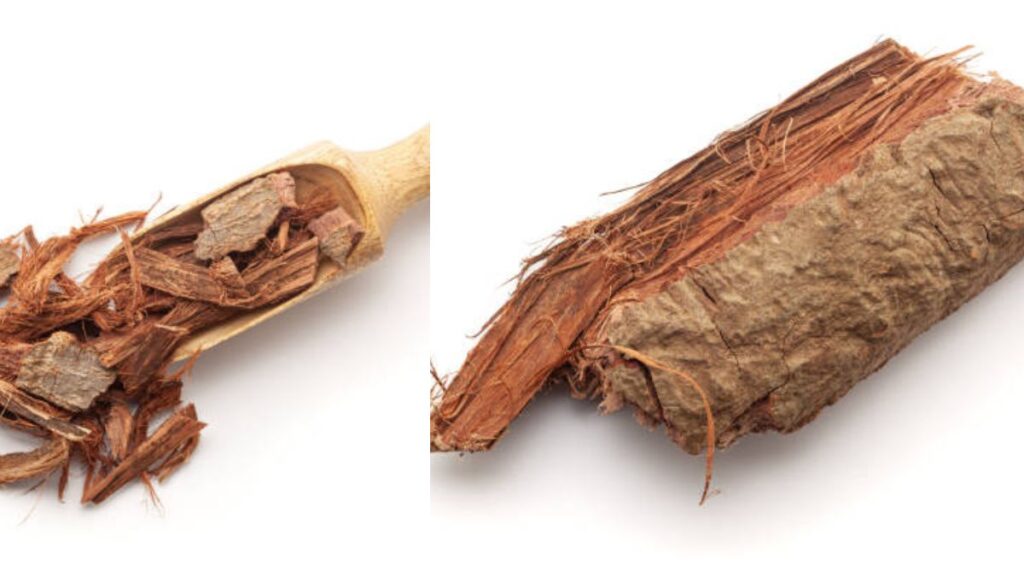Introduction
Breaking Barriers: Arjuna Bark’s Role in Clearing Coronary Blockage Naturally

In the realm of natural remedies, Arjuna bark stands out as a potent solution for combating coronary blockage. This article delves into the profound role Arjuna bark plays in naturally clearing coronary blockage and its implications for cardiovascular health.
Understanding Coronary Blockage
Coronary blockage, often referred to as coronary artery disease (CAD), occurs when plaque builds up inside the coronary arteries, narrowing or blocking them. This condition restricts blood flow to the heart, leading to various cardiovascular complications, including heart attacks and strokes.
Arjuna Bark’s : A Natural Warrior
Derived from the Terminalia Arjuna tree, native to the Indian subcontinent, Arjuna bark has been revered for centuries in traditional Ayurvedic medicine for its cardiovascular benefits. Rich in bioactive compounds like flavonoids, tannins, and triterpenoid saponins, Arjuna bark possesses potent antioxidant and anti-inflammatory properties.

The Mechanism of Action
Arjuna bark exerts its therapeutic effects through multiple mechanisms:
- Anti-atherogenic properties: Arjuna bark helps prevent the formation of atherosclerotic plaque in the arteries, thereby reducing the risk of coronary blockage.
- Vasodilation: The bark contains components that promote the relaxation of blood vessels, improving blood flow and reducing the workload on the heart.
- Lipid-lowering effects: Arjuna bark aids in regulating lipid levels in the blood, including cholesterol and triglycerides, which are significant contributors to coronary artery disease.
Clinical Evidence
Numerous studies have validated the efficacy of Arjuna bark in promoting heart health and alleviating coronary blockage. Clinical trials have demonstrated its ability to reduce angina symptoms, improve exercise tolerance, and enhance overall cardiac function.
Incorporating Arjuna Bark into Your Wellness Routine
Incorporating Arjuna bark into your daily routine can be beneficial for heart health. It is commonly available in various forms, including capsules, powders, and teas. However, it’s crucial to consult with a healthcare professional before initiating any new supplement regimen, especially if you have pre-existing medical conditions or are taking medications.
How does Arjuna bark help in clearing coronary blockage naturally?
Arjuna bark is thought to work in several ways to help clear blocked coronary arteries, but more scientific evidence is needed. Here are some possible ways it might work:
– Improves cholesterol levels: Arjuna bark may lower total cholesterol, “bad” LDL cholesterol, and triglycerides. Lowering these levels can help prevent atherosclerosis, the disease that causes coronary artery blockages.
– Antioxidant activity: Arjuna bark contains antioxidants that help neutralize harmful free radicals in the body. These free radicals can damage arteries and contribute to atherosclerosis. By reducing oxidative stress, Arjuna bark may help protect arteries and prevent plaque buildup.
– Anti-inflammatory effects: Chronic inflammation in artery walls is linked to atherosclerosis and coronary artery disease. Compounds in Arjuna bark, like flavonoids and triterpenoid saponins, have been shown to have anti-inflammatory properties. By reducing inflammation, Arjuna bark may help prevent coronary artery blockages from getting worse.
– Improves heart function: Arjuna bark may strengthen the heart muscle and improve its pumping ability. This can help improve blood flow to the heart and reduce the risk of coronary artery blockages.
– Antiplatelet activity: Some studies suggest that Arjuna bark may prevent platelets in the blood from clumping together. Platelet clumping can lead to blood clots, which can narrow coronary arteries and cause blockages.
What are the side effects of using Arjuna bark for coronary blockage?
Arjuna bark safety information:

Arjuna bark is generally safe for most people when used correctly. But there’s not much scientific evidence about its long-term safety, especially for treating coronary blockage. Like with any herbal remedy or supplement, there’s a chance of side effects, though they’re not common.
Potential side effects:
1. Digestive issues: Some people may get an upset stomach, nausea, vomiting, or diarrhea when taking Arjuna bark.
2. Allergic reactions: Allergies to Arjuna bark are rare, but they can happen. Symptoms include rash, itching, swelling, or trouble breathing. People with allergies to plants in the Combretaceae family, like mango or cashew, are more likely to have an allergic reaction to Arjuna bark.
3. Drug Interactions: Arjuna bark may interact with certain medications, including blood thinners and drugs for high blood pressure or heart conditions. It can make these medications stronger, which could lead to more bleeding or changes in blood pressure. Talk to your doctor before taking Arjuna bark, especially if you’re on any prescription medications.
4. Low blood pressure: Arjuna bark may lower blood pressure slightly. This can be helpful for people with high blood pressure, but it could cause low blood pressure in some people, especially if they’re already taking blood pressure medication.
5. Blood sugar changes: Some animal studies suggest that Arjuna bark may affect blood sugar levels. People with diabetes or those taking medications to lower blood sugar should be careful and monitor their blood sugar levels closely while using Arjuna bark.
6. Liver problems: There have been rare reports of liver damage linked to Arjuna bark supplements. People with liver problems or those taking medications that affect liver function should be cautious.
7. Pregnancy and breastfeeding:There’s not enough safety information about using Arjuna bark during pregnancy or breastfeeding. Pregnant or breastfeeding women should talk to their doctor before using Arjuna bark.
Conclusion
Arjuna bark is a natural remedy that can help clear blockages in the heart’s arteries and improve heart health. Scientific studies have shown that Arjuna bark has many therapeutic effects, which makes it a good choice for people looking for a natural way to treat heart disease.
Arjuna bark can help people take control of their heart health and reduce the risk of heart disease. It’s a natural warrior that can help people achieve a healthier heart and a better life.
Please note: This article is for informational purposes only and should not replace professional medical advice. Always talk to your doctor before making any changes to your healthcare plan.
FAQ
1. What is Arjuna bark?
Arjuna bark is derived from the Terminalia arjuna tree and has been used in traditional Ayurvedic medicine for various cardiac ailments, including coronary artery disease (CAD).
2. How does Arjuna bark help in clearing coronary blockage naturally?
Arjuna bark is believed to work through multiple mechanisms, including improving lipid profile, antioxidant activity, anti-inflammatory effects, enhancing cardiac function, and mild antiplatelet activity. These actions may help prevent the progression of atherosclerosis and reduce the risk of coronary artery blockage.
3. How long does it take to see results from using Arjuna bark for heart health?
The time it takes to see noticeable results can vary among individuals and depends on factors such as the severity of the condition, dosage, individual physiology, and lifestyle. While some improvements may be observed relatively quickly, significant changes in heart health may take several weeks to months.
4. Are there any side effects associated with Arjuna bark supplementation?
While Arjuna bark is generally considered safe for most people when used appropriately, some potential side effects may include gastrointestinal upset, allergic reactions, drug interactions, hypotension, impact on blood sugar, liver toxicity, and caution during pregnancy and breastfeeding. It’s important to consult with a healthcare professional before use.
5.Can Arjuna bark be used alone or should it be combined with other treatments?
Arjuna bark can be used alone or in combination with other treatments for heart health, depending on individual needs and preferences. It’s important to consult with a healthcare professional to determine the most appropriate approach for your specific condition.
References:-
- Scientific Journals: Look for peer-reviewed research articles published in reputable scientific journals focusing on herbal medicine, cardiology, and related fields. Some examples of journals include the Journal of Ethnopharmacology, Phytotherapy Research, and the Journal of the American College of Cardiology.
- Medical Websites and Databases: Websites like PubMed, Web of Science, and Google Scholar can be useful for finding scholarly articles and studies related to Arjuna bark’s effects on heart health and coronary artery disease.
- Books and Review Articles: Textbooks and review articles written by experts in the field of herbal medicine, cardiology, or Ayurveda may provide comprehensive overviews of the topic, including discussions on Arjuna bark’s potential mechanisms of action and clinical evidence.
- Health Organizations and Institutions: Websites of reputable health organizations and academic institutions may provide summaries or guidelines on the use of herbal remedies for heart health, including any evidence supporting their efficacy and safety.






